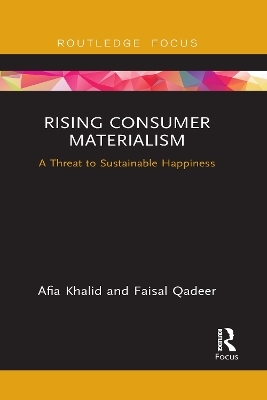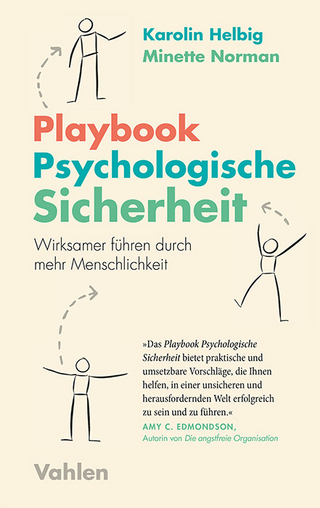
Rising Consumer Materialism
Routledge (Verlag)
978-1-032-09612-4 (ISBN)
This study examines the pre-planned purchase process as the primary step towards sati
Rising Consumer Materialism presents a theoretical advancement of materialism research. It identifies eight areas of a consumer's life that are inter-disciplinary and of prime importance towards promoting happy and rewarding lifestyles. This study examines the pre-planned purchase process as the primary step towards satisfactory consumption. The theoretical framework provides a stream of research possibilities that guide readers towards healthy consumption patterns. Therefore, the book offers practical solutions to problems such as loneliness and unhappiness. It advocates a new dimension of consumption activity and lifestyle choices that can help to re-socialize and improve social bonds; hitting materialism right at its core, making the consumption experience well informed and beneficial for the consumer as well as society.
Together, pre-planned engaging, intrinsic experiential purchases with a view to environmentalism, religiosity, social giving, social support and nostalgia can cure the excessive emphasis on acquiring and showing off valuables that are disruptive to a consumer’s social affiliations and subjective wellbeing.
Rather than utilizing material possessions as a proxy measure for success and happiness resulting in only temporary happiness, discontent, continuous brand/product switching, undesirable post purchase evaluations and shifting brand loyalties, the book establishes alternative mechanisms for achieving happiness. The integrated framework provides a comprehensive solution rather than a half-baked specific situational-based intervention and is a must read for academics, students and consumers alike.
Afia Khalid is a PhD Scholar at the National College of Business Administration & Economics, Lahore, Pakistan. Faisal Qadeer is an Associate Professor and the Head of the Research Programme at Lahore Business School, University of Lahore, Pakistan.
FOREWORD CHAPTER 1 INTRODUCTION 1.1 WHY MATERIALISM RESEARCH IS IMPORTANT, 1.2 SIGNIFICANCE OF MATERIALISM TRAP RESEARCH FOR ACADEMIA, 1.3 INTRODUCTION TO THE MAIN CONCEPTS, Materialism, Loneliness, Happiness, 1.4 WHAT THIS BOOK WILL ACHIEVE, CHAPTER 2 KNOWING THERE IS A TRAP AT HAND 2.1 HOW DO WE KNOW THERE IS A TRAP, 2.2 SYSTEMATIC LITERATURE REVIEW, 2.2.1 Choosing the Phenomenon, 2.2.2 Media Selection for Systematic Literature Search, 2.2.3 Coding Categorization, 2.2.4 Sampling Strategy, 2.2.4.1 Key Word Search, 2.2.4.2 Author Search, 2.2.4.3 Most Cited Articles Covering Materialism, 2.2.4.4 Recent Citations of Related Papers, 2.2.4.5 Review of Related Books, 2.3 THEORY BUILDING PROCESS, 2.3.1 Conceptual Definitions of the Constructs, 2.3.1.1 Materialism, 2.3.1.2 Loneliness, 2.3.1.3 Happiness, 2.3.2 Boundaries Assumptions and Identification of the Scope, 2.3.3 Identifying, Defining and Establishing the Contingency Factors, 2.3.4 Theoretical Framework and the Future Directions, CHAPTER 3 YOU MAY NOT KNOW BUT YOU ARE ALREADY TRAPPED! , 3.1 MATERIALISM – AN INTENSIFYING CONSUMER VALUE, 3.1.1 Materialism as a Negative Consumer Value, 3.1.2 Materialism and Associated Consumption Patterns, 3.2 MATERIALISM AS AN APPROACH TO GAINING HAPPINESS, 3.2.1 Happiness and Subjective Wellbeing, 3.2.2 Materialism and Happiness, 3.2.3 Facets of Materialism and Happiness, 3.3 MATERIALISM AS FORERUNNER OF LONELINESS, 3.3.1 Materialism and Loneliness, 3.3.2 Relationship of Materialism and Loneliness with Happiness, CHAPTER 4 THE BEGINNING OF MATERIALISM-LONELINESS-HAPPINESS (MLH) TRAP 4.1 UNDERSTANDING THE MLH TRAP, 4.2 BREAKING AWAY FROM THE TRAP, 4.2.1 Social Support as an Important Factor That Can Loosen the MLH Trap, 4.2.2 Sustaining the Level of Happiness, CHAPTER 5 INTEGRATION OF MLH TRAP WITH OTHER ASPECTS OF CONSUMER BEHAVIOUR 5.1 PRIOR EFFORTS TO CURB MATERIALISM, 5.2 ESTABLISHING MULTI-DIMENSIONAL FRAMEWORK FOR CURBING MATERIALISM, 5.2.1 The Power of Re-Socialization through Social Support, 5.2.2 Conscious Revamping of the Purchase Mechanism, 5.2.2.1 Socio-Centric Purchase Motivations, 5.2.2.2 Experiential Purchases, 5.2.2.3 Self-Engrossing Product Evaluation, 5.2.3 Bridging the MLH Gaps through Social Giving, 5.2.4 Substituting the Value of Materialism with Value of Conservation, 5.2.4.1 Environmentalism, 5.2.4.2 Religious Orientation, 5.2.5 Utilizing Nostalgia for Sustained Happiness, CHAPTER 6 SOCIO-PSYCHOLOGICAL THEORY OF MLH TRAP 6.1 WHY MLH TRAP EXISTS, 6.1.1 Three Main Constructs, 6.1.2 Socio-Psychological Factors, 6.2 SOCIO-PSYCHOLOGICAL THEORY OF MATERIALISM TRAP, 6.3 IMPACT OF SOCIO-PSYCHOLOGICAL FACTORS ON MATERIALISM, 6.3.1 Impact of Purchase Mechanism on Materialism, 6.3.1.1 Egocentric Purchase Motivations and Materialism, 6.3.1.2 Socio-centric Purchase Motivations and Materialism, 6.3.1.3 Experiential Purchases and Materialism, 6.3.1.4 Product Evaluation and Materialism, 6.3.2 Impact of Environmentalism on Materialism, 6.3.3 Impact of Religiosity on Materialism, 6.4 IMPACT OF SOCIO-PSYCHOLOGICAL FACTORS ON LONELINESS, 6.4.1 Impact of Nostalgia on Loneliness, 6.4.2 Impact of Social Giving on Loneliness, 6.5 IMPACT OF SOCIO-PSYCHOLOGICAL FACTORS ON HAPPINESS, 6.5.1 Impact of Purchase Mechanism on Happiness, 6.5.1.1 Egocentric Purchase Motivations and Happiness, 6.5.1.2 Socio-centric Purchase Motivations and Happiness, 6.5.1.3 Experiential Purchases and Happiness, 6.5.1.4 Product Evaluation and Happiness, 6.5.2 Impact of Environmentalism and Religiosity on Happiness, 6.5.3 Impact of Social Giving on Happiness, 6.5.4 Impact of Nostalgia on Happiness, 6.6 CONTINGENCY FACTORS FOR M-L RELATIONSHIP, 6.6.1 Impact of Social Support on M-L Relationship, 6.6.2 Impact of Environmentalism and Religiosity on M-L Relationship, 6.6.3 Impact of Social Giving on M-L Relationship, 6.6.4 Impact of Nostalgia on M-L Relationship, 6.7 CONTINGENCY FACTORS FOR L-H RELATIONSHIP, 6.7.1 Impact of Social Support on L-H Relationship, 6.7.2 Impact of Nostalgia on L-H Relationship, 6.8 SUMMARY, CHAPTER 7 DISCUSSION AND CONCLUSION, 7.1 DISCUSSION ON THE INTEGRATION, 7.2. CONTRIBUTIONS AND IMPLICATIONS, 7.3 LIMITATIONS AND DIRECTIONS, 7.4 CONCLUSION, APPENDIX, REFERENCES
| Erscheinungsdatum | 01.07.2021 |
|---|---|
| Reihe/Serie | Routledge Focus on Business and Management |
| Zusatzinfo | 5 Illustrations, black and white |
| Verlagsort | London |
| Sprache | englisch |
| Maße | 138 x 216 mm |
| Gewicht | 163 g |
| Themenwelt | Geisteswissenschaften ► Psychologie ► Arbeits- und Organisationspsychologie |
| Sozialwissenschaften ► Kommunikation / Medien ► Kommunikationswissenschaft | |
| Wirtschaft ► Betriebswirtschaft / Management ► Personalwesen | |
| ISBN-10 | 1-032-09612-8 / 1032096128 |
| ISBN-13 | 978-1-032-09612-4 / 9781032096124 |
| Zustand | Neuware |
| Haben Sie eine Frage zum Produkt? |
aus dem Bereich


